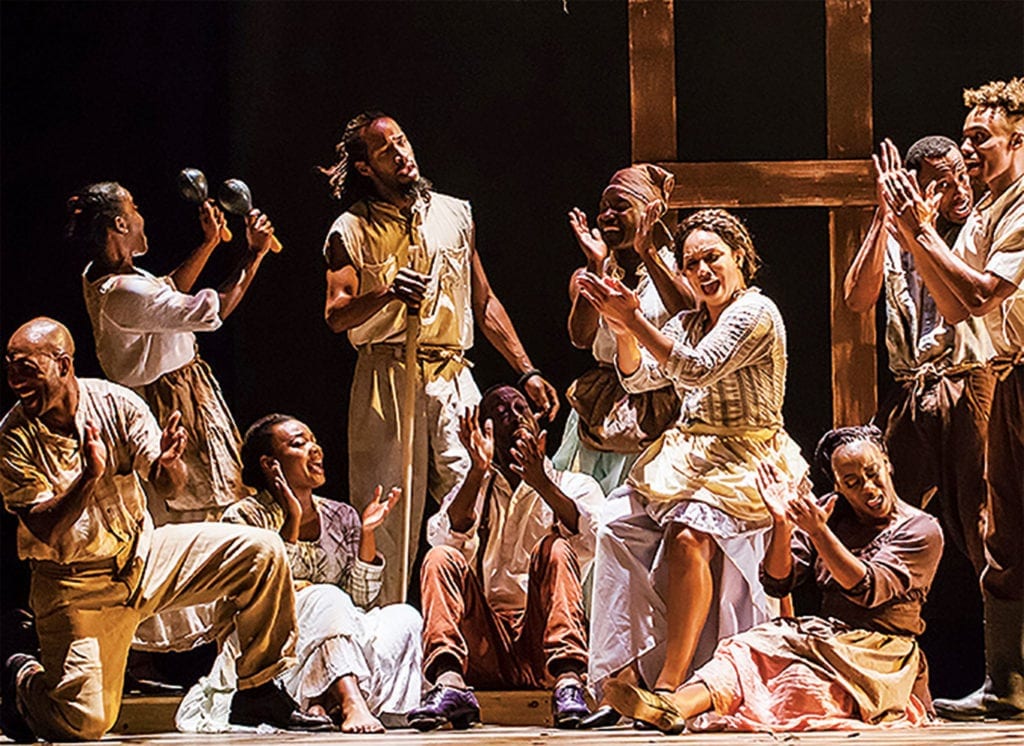They could not stop the beat
Step Afrika! Illustrates resilience through dance

When Step Afrika! walks onto ArtsEmerson’s Cutler Majestic Theatre stage to perform “The Migration: Reflections on Jacob Lawrence,” the whole audience loses their breath. There’s no small talk, no prologue, no messing around — just strong drumbeats and powerful movement.
“The Migration,” based on Jacob Lawrence’s painting series, follows the narrative of African Americans migrating from the rural South and the remnants of bondage, northward to cities and different opportunities. Lawrence’s paintings are projected behind the dancers, providing narrative structure and emotive, tempera-painted scenery. Having the paintings directly behind the performers allows the audience to draw parallels between the two, noting where the choreography is inspired by the brushstrokes.

Scene from Step Afrika
Step Afrika! was the first professional company dedicated to the tradition of stepping, a dance form in which the body is used as an instrument through footsteps, clapping and spoken word. The company now ranks as one of the top ten African American dance groups in the country. Step Afrika! merges contemporary percussive styles with African traditional dance. Watching the group is akin to taking a course in dance history. It’s easy to see where hip-hop and tap styles have developed from these African traditions.
Every step of this performance feels natural. It feels less like a ticketed event and more like the audience stumbled into a neighborhood on a warm afternoon. In a semi-circle of dancers clapping and cheering, each performer shows off their technique as though possessed by the spirit of the beat. This is what hips are made for. At every turn, a new talent adds to the performance — live solos on the drums and saxophone, an abbreviated gospel choir belting “Wade in the Water” and spoken-word chants.
Early in the performance, the chant “They took their drums away, but they could not stop the beat,” permeates through the theater. It’s both a reference to the physical beat made by stepping through stomping, clapping and chanting and an allusion to the indomitable African American spirit that keeps dancing through every trial and tribulation.
The ArtsEmerson performance in Boston was a short five-show run, but Step Afrika! will perform “The Migration” in their home city, Washington, D.C., June 8 through 17.
“The Migration” provides a sensory experience of resilience. Its only flaw is that it goes too fast and ends too soon. No matter your religion, a Step Afrika! performance is an artistic church, and you are encouraged to testify.






